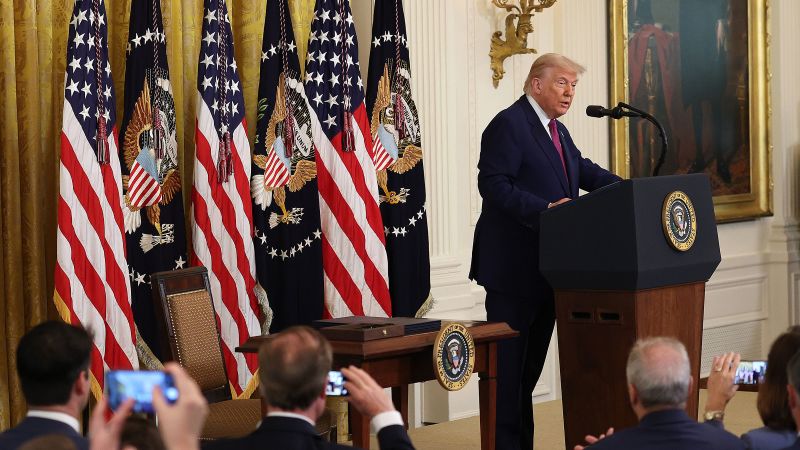Donald Trump’s 2024 presidential campaign was marked by a bold promise: to bring an end to endless wars and usher in an era of world peace. This pledge resonated deeply with many Americans weary of prolonged conflicts and costly foreign entanglements. However, as Trump’s second term unfolds, the reality on the ground appears increasingly divergent from his campaign rhetoric, particularly concerning the volatile situation in the Middle East.
This article delves into Trump’s initial promises of peace, contrasting them with his recent actions and statements regarding the escalating tensions between Israel and Iran. It examines whether Trump’s vision of a calmer world is still attainable, or if his administration is charting a course that veers sharply away from his peacemaking pledges.
Trump’s Campaign Promises of Peace
Throughout his campaign, Trump consistently criticized his predecessor, Joe Biden, for the ongoing conflicts in Ukraine and the Middle East. He asserted that these wars would never have occurred under his leadership and repeatedly promised to swiftly resolve them. At a National Guard conference, Trump declared, ‘We’re uniting forces to end the endless foreign wars,’ highlighting his commitment to a less interventionist foreign policy.
Trump’s emphasis on ending wars was not merely a rhetorical device; it was a central theme that differentiated him from his political rivals. He argued that his unique ability to negotiate and exert influence on world leaders would enable him to broker peace agreements and de-escalate conflicts. These promises resonated with voters who longed for a return to stability and a reduction in America’s global military footprint.
‘I will have that war settled between Putin and Zelenskyy,’ Trump stated confidently at CNN’s June 2024 presidential debate.
A Shift in Stance: The Case of Iran
One of the most significant departures from Trump’s peace-oriented campaign rhetoric is his evolving stance on Iran. Despite initially advocating for a more restrained approach to foreign policy, Trump’s administration has recently adopted a more hawkish tone, particularly concerning Israel’s ongoing conflict with Iran.
Trump’s openness to using US military might to support Israel against Iran marks a stark contrast to his repeated promises of prioritizing American interests and avoiding foreign entanglements. This shift has sparked debate within the Republican party, with some prominent voices, such as Tucker Carlson, questioning the wisdom of US involvement in the conflict.
Despite campaigning on the idea that world leaders would respect and fear him in a way they didn’t Biden, Trump has so far been unable to persuade or pressure Vladimir Putin into ending the war with Ukraine. Similarly, on the issue of Israel and Iran, it is Trump who appears to be moving closer to Netanyahu’s position.
Fears of a Widening Conflict
Trump’s critics argue that his current approach to the Middle East risks escalating tensions and potentially drawing the US into another costly and protracted conflict. They point to his strong support for Israel’s military actions and his tough rhetoric towards Iran as evidence of a more interventionist foreign policy.
During the campaign, Trump warned that Biden’s policies were leading the world towards World War III, saying: ‘(Biden) will drive us into World War III, and we’re closer to World War III than anybody can imagine.’ His critics now suggest that his own policies risk causing the very outcome he criticised.
The potential for a wider conflict in the Middle East raises serious concerns about the future of global stability and the potential for a devastating war. Trump’s ability to de-escalate tensions and prevent further bloodshed will be a critical test of his leadership.
Broken Promises?
Trump’s shift in foreign policy raises questions about whether he can deliver on his promises of peace. While he has argued that his actions are necessary to protect American interests and maintain global stability, his critics contend that he is straying from the path he laid out during his campaign.
At his second inaugural address, Trump stated: ‘My proudest legacy will be that of a peacemaker and unifier.’ It remains to be seen whether Trump can reconcile his current foreign policy with his earlier promises of peace and non-intervention.
The coming months will be crucial in determining whether Trump can fulfill his peacemaking ambitions or whether his presidency will be defined by escalating conflicts and renewed American involvement in foreign wars.
Conclusion: A Legacy of Peace or Conflict?
Donald Trump’s presidency presents a complex and evolving picture of American foreign policy. While he initially campaigned on a platform of ending wars and promoting peace, his recent actions and statements regarding the Middle East suggest a more interventionist approach.
Whether Trump can reconcile these conflicting tendencies and forge a path towards lasting peace remains to be seen. His legacy will depend on his ability to navigate the challenges of a complex and dangerous world while remaining true to his promise of a less interventionist and more peaceful foreign policy.

Leave a Reply